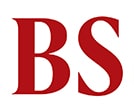Page 12 - Who
Covax calls for equal recognition of Covid-19 vaccines approved by WHO
Covax on Thursday urged governments around the world to recognize as fully vaccinated all people who have received Covid-19 vaccines that have been deemed safe and effective by WHO
Any WHO-approved Covid-19 vaccine should be allowed for travel, says UN
The World Health Organisation said Thursday that any COVID-19 vaccines it has authorised for emergency use should be recognised by countries as they open up their borders to inoculated travellers. The move could challenge Western countries to broaden their acceptance of two apparently less effective Chinese vaccines, which the UN health agency has licensed but most European and North American countries have not. In addition to vaccines by Pfizer-BioNTech, Moderna Inc, AstraZeneca and Johnson & Johnson, the WHO has also given the green light to the two Chinese jabs, made by Sinovac and Sinopharm. In its aim to restore travel across Europe, the European Union said in May that it would only recognise people as vaccinated if they had received shots licensed by the European Medicines Agency -- although it's up to individual countries if they wish to let in travellers who have received other vaccines, including Russia's Sputnik V. The EU drug regulator is currently considering licensing
Highly transmissible Covid Delta variant detected in 96 countries, says WHO
The Delta Covid-19 variant, first identified in India, has already been detected in 96 countries, 11 more than last week, the World Health Organisation said
India believes there is urgent need for major reforms in WHO: Harsh Vardhan
India believes there is an urgent need for carrying out "major reforms" in the World Health Organization to ensure a timely, focused and effective response to potential future pandemics
African Union urges EU to expand vax list to include WHO-Covax vaccines
The African countries have received the Covishield jab from WHO-led Covax
EU, WHO launch new tool to evaluate effectiveness of contact tracing
The European Center for Disease Prevention and Control (ECDC) and the World Health Organization (WHO) have developed a tool to evaluate the public health effectiveness of contact tracing solutions
Covid vax may not be enough, masks, distancing must continue: WHO
As the highly contagious Delta variant is spreading rapidly, being vaccinated may not be enough, people must continue wearing masks, maintain social distancing
Africa's Covid-19 caseload at historic high amid third wave: WHO official
The number of Covid-19 cases in Africa has increased at an unprecedented pace as continent grapples amid the ongoing third wave that has posed a dire threat to continent's public health infrastructure
Now in 85 countries, Delta variant expected to become dominant lineage: WHO
The Delta variant, the significantly more transmissible strain of Covid-19, is expected to become a dominant lineage if current trends continue, the WHO has warned
WHO raises concerns over Sputnik V Covid-19 vaccine manufacturing plant
WHO has raised concerns over a manufacturing plant responsible for filling the vials with the Sputnik V Covid-19 vaccine
Not a single case of Covid-19 detected, North Korea tells WHO
North Korea has told the World Health Organisation it tested more than 30,000 people for the coronavirus through June 10 but has yet to find a single infection
Recommending Covid-19 booster shot will be premature: WHO scientist
More-transmissible strains are prompting vaccine makers to test whether tweaked versions of their existing shots will provide broader immunity.
30 to 40 countries unable to give second Covid-19 shots: WHO official
Between 30 to 40 countries are unable to provide second doses of a Covid-19 vaccine, especially those expecting jabs from AstraZeneca, officials of the World Health Organization (WHO) said.
WHO working with AstraZeneca, SII, Indian govt to restart vax shipment
The WHO is urgently trying to work with AstraZeneca, Serum Institute of India (SII) as well as the Indian government to restart shipments of Covid-19 vaccines to countries
Covid-19 claims 4 million lives amid rising Delta variant risk: Report
Delta variant becoming globally dominant, says Swaminathan
Covid: WHO urges countries to bridge $16 bn funding gap for ACT Accelerator
Access to Covid-19 Tools (ACT) Accelerator project aims to accelerate the development, production, and equitable access to Covid-19 tests, treatments and vaccines left unanswered
Harsh Vardhan addresses WHO high level coalition on health, energy
The Covid pandemic has reiterated a massive interdependence among various sectors and the need to ensure inter-connectedness is reflected in policies for effective and service delivery he said.
Setbacks to Serum Institute of India leave world short of Covid shots
The world's largest vaccine maker has been dogged by problems, from a ban on exports to a factory fire, that have hampered its ability to fill orders
Eradicating coronavirus globally not a reasonable target, says WHO
Eradicating Covid-19 from the world is not currently a "reasonable target", David Nabarro, a special envoy to the World Health Organization said on Sunday.
Must find ways to ensure affordable access to key drugs amid Covid: Vardhan
Health Minister Harsh Vardhan said that there is no scope for industries to stick to IPR and that organizations must find ways to ensure affordable access to key drugs.
